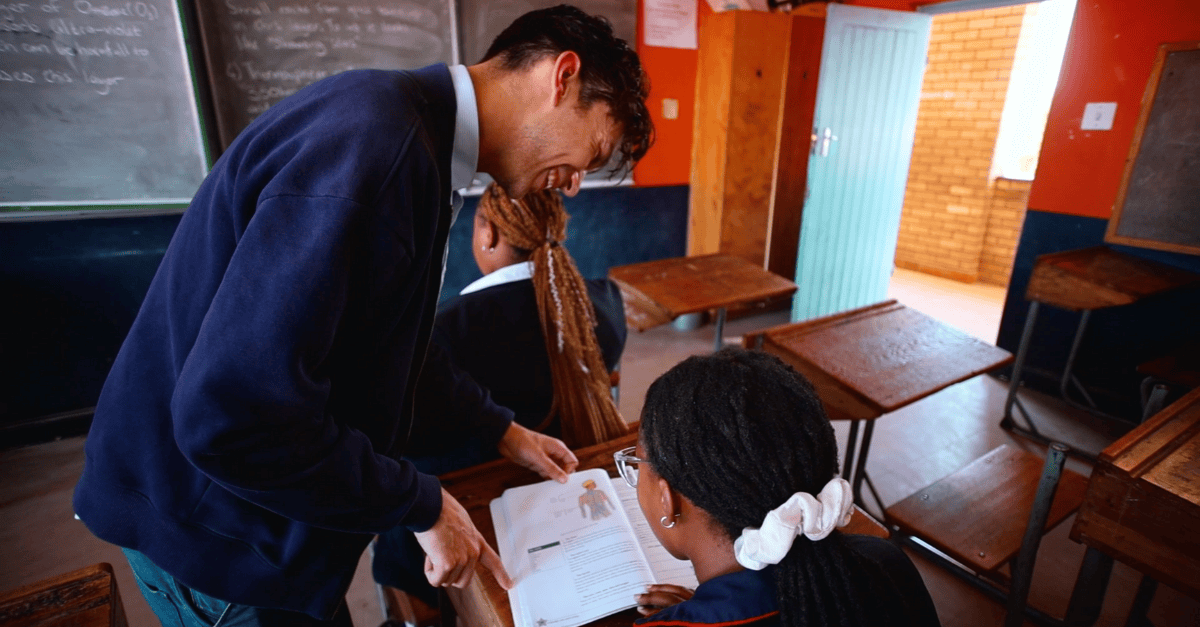Unlocking the transformative power of EdTech on International Literacy Day

South Africa faced a grim reality when the results from the most recent Progress in International Reading Literacy Study (PIRLS) were released. The report painted a stark picture of our nation’s literacy crisis, especially among Grade 4 learners.
Statistics revealed that over 80% of Grade 4 students were unable to grasp the meaning of written texts in any language, representing a concerning increase from 78% in 2016. South Africa ranked last on the list of 57 participating countries in the PIRLS study, highlighting the urgent need for effective interventions to address the literacy crisis in our country.
Education technology (EdTech) has the potential to breathe new life into the teaching of literacy in schools. It provides a diverse array of captivating resources that can not only make the process of learning to read and write more exciting and fulfilling for learners, but also more accessible.
UNESCO declared September 8th as International Literacy Day in 1966 with the purpose of underscoring the significance of literacy for individuals, communities, and societies worldwide. This designation serves as a reminder for the global community to redouble its commitment to advancing literacy.
On this International Literacy Day, we are prompted to recognise the vital significance of reading and writing skills, which are essential for preserving dignity, fostering sustainability, and upholding human rights. In this exploration, we delve into how EdTech can improve literacy both in and outside of the classroom.
Personalised learning platforms
EdTech platforms offer adaptable and tailored learning experiences for students. Many of these platforms assess each learner’s literacy level and adapt the lessons to their needs. Teachers can monitor student progress in real-time and receive data-driven insights into individual strengths and development areas. This allows teachers to customise instruction for each learner, ensuring they receive the necessary support to enhance their literacy skills.
Interactive eBooks and digital libraries
Digital books, augmented learning and digital libraries offer interactive features like audio narration, word highlighting, and multimedia elements that engage students while reading. Educators can leverage these resources to make reading fun and accessible for learners, especially those who struggle with traditional printed materials. Digital libraries also supply a wide selection of reading materials, catering to various reading levels and interests.
Language learning applications
EdTech apps and platforms designed for language learning are valuable tools for improving literacy, especially for English as a Second Language (ESL) learners. These apps offer interactive lessons, vocabulary exercises, and pronunciation guides. Educators can incorporate these apps into their curriculum to supplement classroom instruction and help students build language proficiency.
Gamified learning for engagement:
EdTech offers a wide range of gamified literacy apps and platforms that make reading and writing engaging and exciting. These interactive tools use elements like game mechanics, rewards, and competition to motivate students to practise and improve their literacy capabilities. Gamification boosts students' intrinsic motivation, making them more enthusiastic about literacy. Teachers can incorporate these gamified resources into their lessons to create a dynamic and enjoyable learning journey.
Real-time assessment and feedback:
EdTech allows teachers to monitor students' progress in real time. Digital assessment platforms and automated grading systems give instant feedback on assignments, enabling teachers to identify areas where students may be struggling with literacy skills. This timely feedback allows for quick interventions and adjustments to teaching strategies, ensuring that learners receive the support they need and ultimately accelerating their literacy development.
EdTech provides numerous opportunities for the elevation of literacy education in schools. Whether using tailored learning journeys, gamification, real-time assessment, digital libraries, or language-learning apps, EdTech equips teachers and schools with valuable assets to captivate students and cultivate their literacy abilities successfully. By integrating these tools into their teaching methods, educators can establish a more comprehensive and captivating learning atmosphere, ultimately helping learners become skilled readers and writers.
How some of the 2023 Mastercard Foundation EdTech Fellowship Program participants that are contributing to enhancing literacy in South Africa:
Afrika Tikkun Bambanani aims to provide South African children with access to a high-quality, standardised Early Childhood Development (ECD) curriculum through their learner tablet app, BambaLearn. BambaLearn ensures age-appropriate progress by closely monitoring performance through various educational activities like puzzles, storybooks, problem-solving games, literacy exercises, and letter recognition. By using this innovative approach, Afrika Tikkun Bambanani can expand their reach significantly. Their carefully curated audio and visual book selections, as well as specialised games, make literacy skill development engaging and meaningful for children.
Ambani Africa harnesses augmented reality, animation, and gamification to craft user-centric language learning tools. The Ambani app accelerates language learning, improves retention, and boosts language proficiency. It encompasses a range of languages, including isiZulu, isiXhosa, Kiswahili, Setswana, Sepedi, Tshivenda, and English. Tailored for educators, Ambani Learn serves as an educational digital platform that assists in evaluating and streamlining the progress of isiZulu learners. Ambani Learn stimulates participation and bolsters learner motivation. This platform operates on a subscription basis, offering customisation to align with a school's specific curriculum and technological requirements.
Click Learning, an NGO that assists under-resourced South African primary schools, improves fundamental literacy, numeracy, and digital skills by implementing relevant online educational initiatives. These online resources offer self-paced, personalised learning, effectively enhancing English literacy skills through technology. Since Click Learning started in 2012, 200 000 literacy learners have been reached in four South African provinces.
FunDza Literacy Trust’s objective is to improve the reading habits and literacy skills of South Africa's young population by providing a mobile-friendly digital library. They achieve this by promoting reading for enjoyment, encouraging meaningful writing, and fostering lifelong learning. FunDza’s ultimate goal is to nurture educated, empowered, and actively involved young leaders and citizens who will contribute positively to our country.



.png)